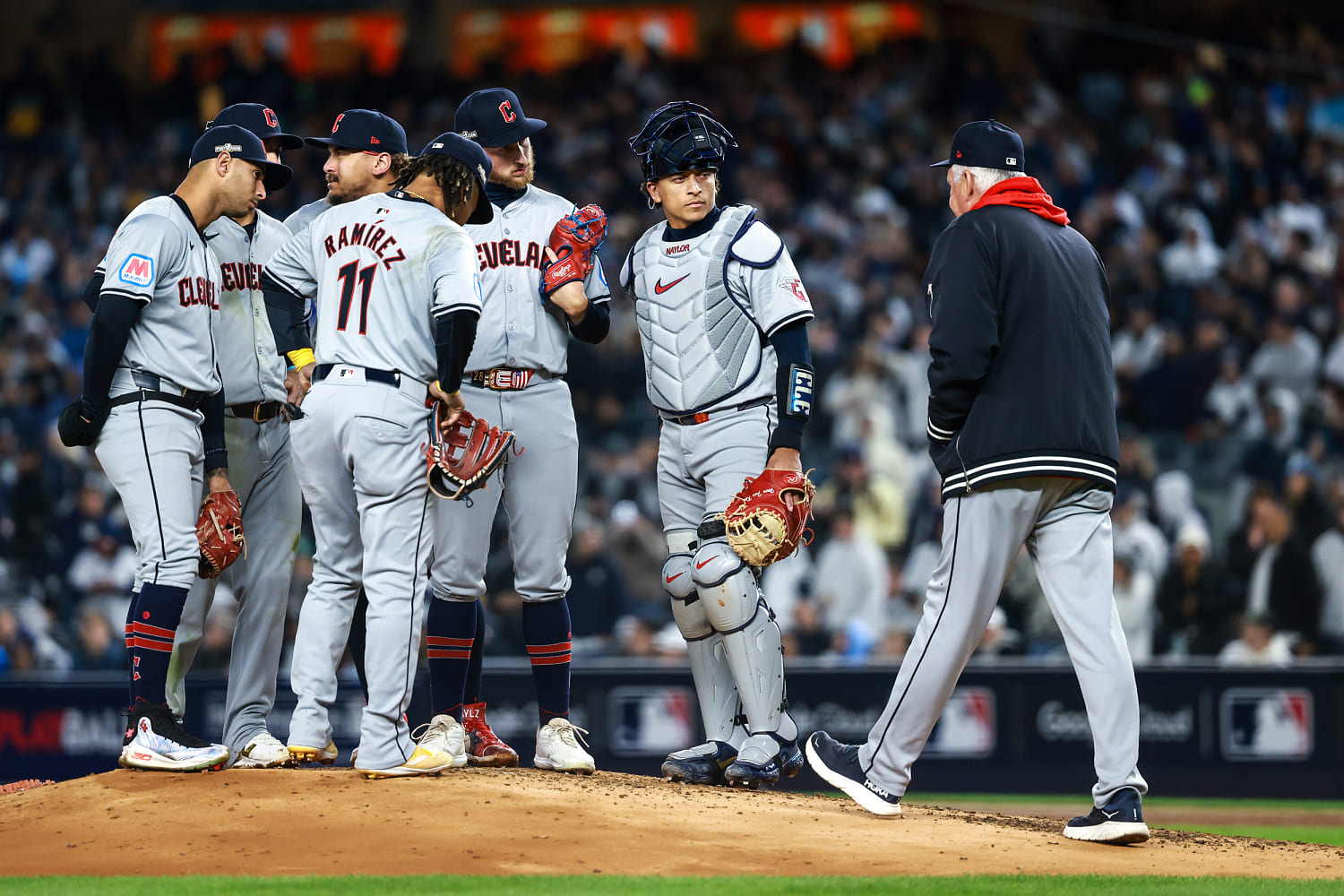
The American League Championship Series is a matchup between the free-spending, 27-time World Series champions New York Yankees and the long-suffering, low-budget Cleveland Guardians, who are chasing their first ring since 1948. It’s a classic baseball morality tale — the scrappy small-market upstarts taking on the pinstriped blue bloods. (The classic 1989 comedy “Major League” hinges on this very same matchup.)
But like most morality tales, the truth is more complicated than the narratives of good vs. evil or rich vs. poor.
The Guardians, who are down 1-2 to the Yankees in the best-of-seven series, are owned by the father-son duo of Larry and Paul Dolan — whose reported $4.6 billion fortune puts them somewhere near the top five on the list of richest owners in Major League Baseball (estimates vary).
Like most morality tales, the truth is more complicated than the narratives of good vs. evil or rich vs. poor.
Larry Dolan’s brother, Charles Dolan, founded Cablevision, a private company with government-sanctioned monopoly powers, which enabled him to become one of the richest people in the world. At 98, Charles Dolan is reportedly worth $5.5 billion, and in the late 1990s gifted the New York Knicks, New York Rangers, Madison Square Garden and other properties to his son, James Dolan — who despite a recent resurgence for the Knicks, has been far from a paragon of successful stewardship in his two and a half decades in charge.
When Larry Dolan bought the Cleveland baseball franchise (then known as the Indians) in 1999, a New York Times write-up of the deal reported that he “and his family trusts, which are said to be enriched by appreciating Cablevision stock, would own the team.” And while the Guardians appeared in the 2016 World Series (losing a historic seven-game thriller to the Chicago Cubs), this is just their third ALCS appearance in the 25 seasons since the Dolans bought the team.
But wait! Isn’t Cleveland a small market? How could the Guardians possibly compete with the big market bullies?
It’s a myth that small market teams cannot find success in MLB. Sure, the cable TV contracts for large markets will be bigger, giving those teams a revenue-generating advantage. But the ability to fill up a stadium with paying customers is not defined by a ZIP code. According to current Nielsen rankings, the Cleveland-Akron metro area is the 19th largest media market in the country. By comparison, St. Louis is the 24th largest, and yet the Cardinals’ owners find a way to invest in their product, typically put a competitive roster on the field and annually rank among the league leaders in stadium attendance. (The Cardinals missed the playoffs this season despite an active payroll of over $112 million, while the Guardians are in the ALCS with an active payroll of just over $50 million, a testament to the creativity of the Guardians’ front office, which does have a well-earned reputation of doing a lot with a little.)
While the Dolan-owned Guardians consistently rank among the lowest payrolls in the game, the team’s owners in the 1990s consistently had one of the highest payrolls, which produced a run that included two World Series appearances, five consecutive division titles and a mix of homegrown stars, expensive veterans and a few future Hall of Famers. Though they didn’t win a championship, those are still some glory days that Guardians fans have to look back on — when the ownership invested in its product.
More ridiculous than the spectacle of sports-team-owning billionaires pleading poverty is the idea that they’re in it ‘for the community.’
The Guardians are currently valued by Forbes at $1.35 billion, more than four times as much as what Larry Dolan paid for the team in 1999. In a 2019 interview with The Athletic, Paul Dolan said, “More often than not, we lose money,” but he added, “We have an opportunity to engage in the community in ways that you can’t in any other way. It’s enriched all of our lives.”
More ridiculous than the spectacle of sports-team-owning billionaires pleading poverty — MLB owners are not required to open their teams’ books to the public — is the idea that they’re primarily in it “for the community.”
In 2021, the team’s ownership convinced the Cleveland City Council to hand them $285 million in taxpayer dollars to fund a $435 million grant to renovate their home stadium. Field of Schemes — a site devoted to exposing the universal folly of publicly financed sports stadiums — noted at the time that the grant is in addition to the roughly $350 million in taxpayer funds that helped build the stadium in the early 1990s, on top of the roughly $4.5 million per year in “sin tax” funds that go to Cleveland’s three pro sports franchises.
When “the community” is the primary financier of a project meant to increase the profitability of your private business, you’re not a philanthropist; you’re a crony capitalist.
I’m not saying don’t root for the Guardians as underdogs in the ALCS; they are. Just don’t blame their underdog status on factors beyond their ownership’s control.
There are no poor billionaires, and we should always be wary of claims that moguls who own sports franchises do so because of their devotion to the community. There are, however, many such tycoons who short-change their team’s fans by demanding tax breaks and publicly funded stadiums. These same tycoons then decline to adequately invest their own fortunes in the product they put on the field for games — that they charge the public money to watch.
Whether you’re the $4.6 billion Dolans in Cleveland or the $3.8 billion Steinbrenners in New York, you’re insanely rich, and the baseball team is your toy. If it’s an unsustainable money loser, sell it. But you can’t blame market size for miserliness.
